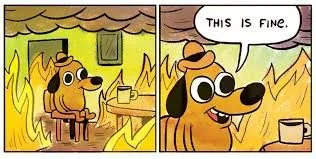How to Recognize Burnout and Recover From It
Burnout has become so common that many of us barely notice when we’re in it—we just keep going. As Asian American women, we often balance multiple roles: showing up at work, caring for family, supporting friends, and striving to meet everyone’s expectations (including our own). Somewhere along the way, exhaustion starts to feel normal.
But burnout isn’t just about being tired—it’s your mind and body’s way of saying, something needs to change. Recognizing the signs early can help you recover before you completely run on empty.
Recognizing the Signs of Burnout
Burnout can show up in subtle and surprising ways. You might notice:
Physical signs:
Constant fatigue even after sleeping
Headaches, muscle tension, or frequent colds
Trouble falling asleep or staying asleep
Emotional signs:
Feeling detached, numb, or cynical about things you used to care about
Irritability or snapping at people more easily
Difficulty focusing or feeling motivated
Behavioral signs:
Withdrawing from friends or loved ones
Using food, alcohol, or social media to cope
Working harder to “catch up,” but still feeling behind
These are not just signs of “being busy”—they’re signs of burnout. And they’re messages from your body and mind asking for rest and compassion.
Why Ignoring Burnout Makes It Worse
As children of immigrants, we have been raised to push through discomfort because our elders had no other choice but to be strong, responsible, and self-sufficient. But ignoring burnout doesn’t make it go away; it often deepens it.
When burnout goes unchecked, it can lead to chronic stress, anxiety, depression, or even physical health issues. It can also affect your relationships, productivity, and sense of purpose. The longer you ignore burnout, the harder it becomes to recover from it.
Taking burnout seriously doesn’t make you weaker than your elders. It means you have the privilege to move beyond just trying to survive and you are trying to thrive.
How Therapy Helps With Burnout Recovery
Burnout recovery takes more than a weekend off. It’s a process of learning to slow down, set boundaries, and reconnect with yourself.
Therapy for burnout can help you:
Identify the roots of your burnout—like people-pleasing, perfectionism, or cultural pressures.
Develop healthy boundaries so you can protect your time and energy without guilt.
Rebuild your sense of balance by learning tools to manage stress and reconnect with what truly nourishes you.
Create sustainable habits for rest, joy, and emotional regulation.
A therapist can provide structure, perspective, and gentle accountability as you rebuild a healthier rhythm of life. Many Asian American women find therapy especially helpful for unpacking the cultural expectations that contribute to burnout; like feeling you “shouldn’t be a burden”
It’s Time to Prioritize Your Wellbeing
If you’ve been running on autopilot and feeling drained, it might be time to pause and ask what your mind and body need. Burnout recovery is possible and you don’t have to navigate it alone.
Our team of therapists specializes in helping Asian American women recover from burnout and rebuild a life that feels balanced, meaningful, and sustainable.
🌿 Schedule a consultation today to take the first step toward healing and renewal.

